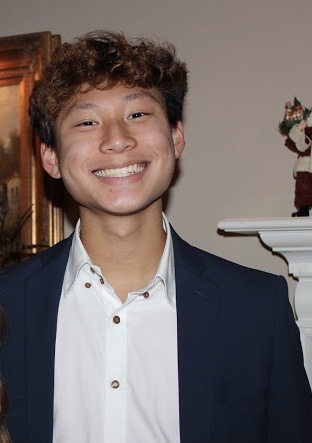Eric Choi, COL ’24, Hoover, Alabama

This summer, I worked at a neuroscience research lab under the guidance of Professor Martha Farah. Specifically, I looked through the UK Biobank, a massive database filled with patient information, and tried to find relationships among major parts of the brain, depression, and socioeconomic status. As an economics major, it may seem weird as to why I would choose this particular research topic, but as I am looking into a career in data science, this research lab helped facilitate what it means to be a data scientist in an area I have some knowledge of. With the help of Career Services funding, I was able to learn the basics of analyzing data as well as crafting lines of code to help me find answers.
Throughout the summer research, I was tasked with finding whether physical parts of the brain related to both socioeconomic status and depression. This required that I go into the database with over half a million patients’ information and pinpoint exactly what I needed and how I needed to manipulate the data.
A majority of my time spent was at the computer, typing out lines of code and running regressions to see if the relationship was present. There were times when I had to filter out some information in the database because it contained information that was not viable for our research like patients who were heavy drinkers. There were also times when I had to map out the information on a scatter plot or even a heatmap of what pieces of information highly correlated with each other. This was done for many parts of the brain, but the ones that were specifically targeted by me were the volumes of the amygdala (and its subregions), hippocampus, ventral striatum, anterior cingulate cortex, and the insula.
While the research team and I have found significant correlations and findings related to this topic, we are still looking into many aspects that were left untouched. Machine learning has recently been utilized to aid in this process, which I hope to learn more about as that is crucial to being a data scientist. Neural networks is the next step for this research, and I have been and will keep working on it with the school year coming soon.
Overall, I am so grateful to have worked in such a great research lab with the best mentors. It is only through the Career Services funding that I was able to live in Philadelphia over the summer and continue learning more about the profession. I was able to explore what it means to be a data scientist in research as well as look at interesting findings throughout the summer. I hope to continue this research and keep learning what it means to be a data scientist.
This is part of a series of posts by recipients of the 2022 Career Services Summer Funding Grant. We’ve asked funding recipients to reflect on their summer experiences and talk about the industries in which they spent their summer. You can read the entire series here.




